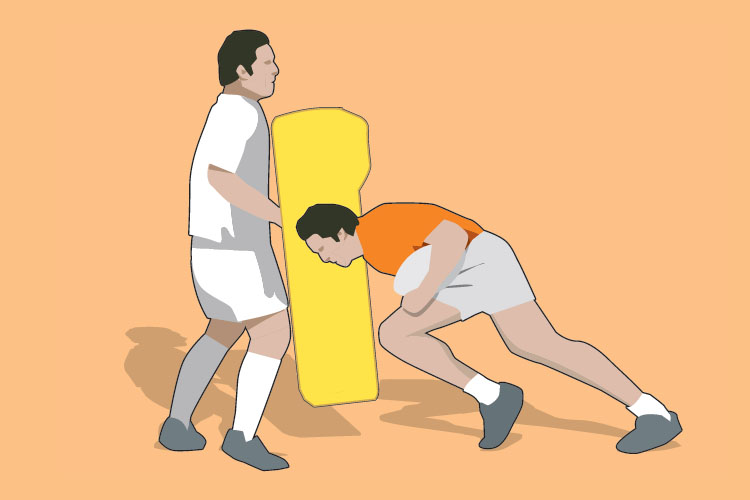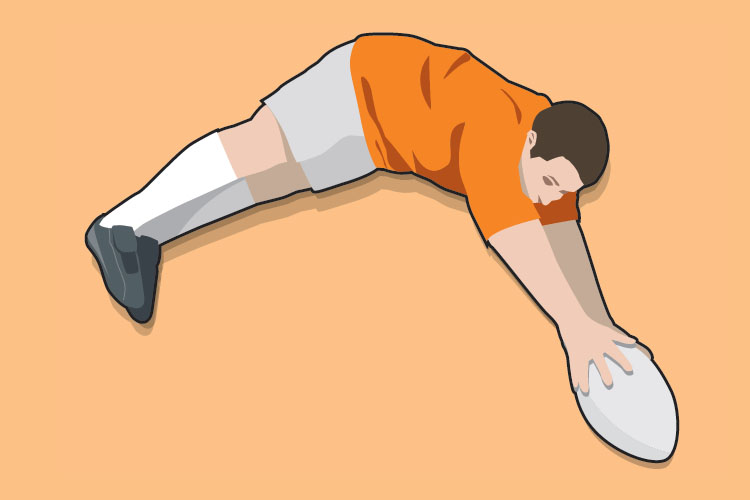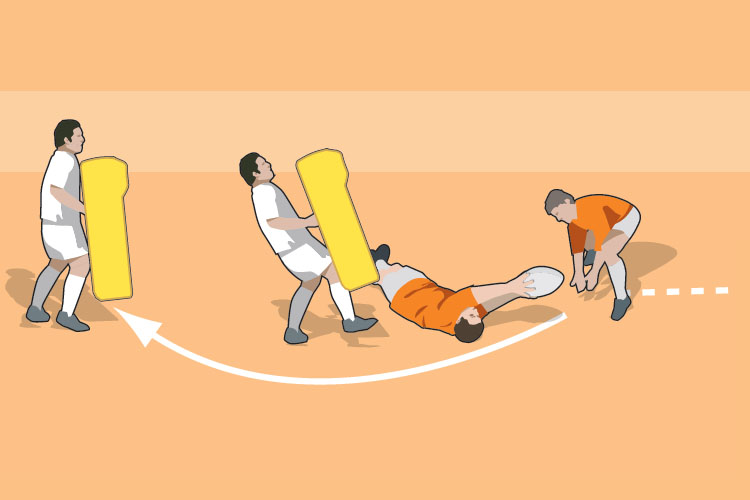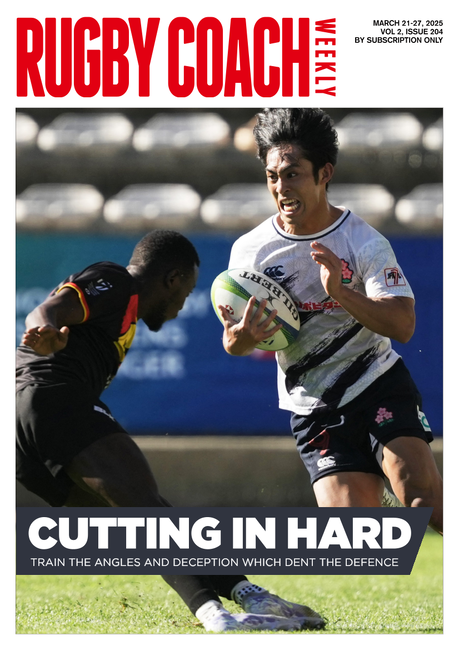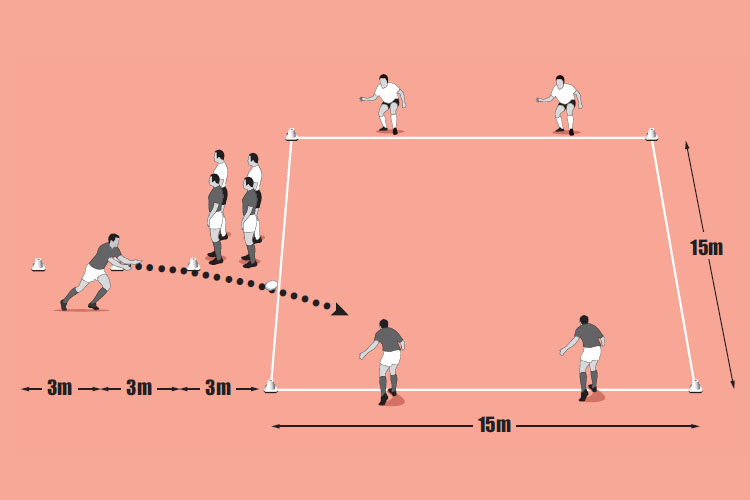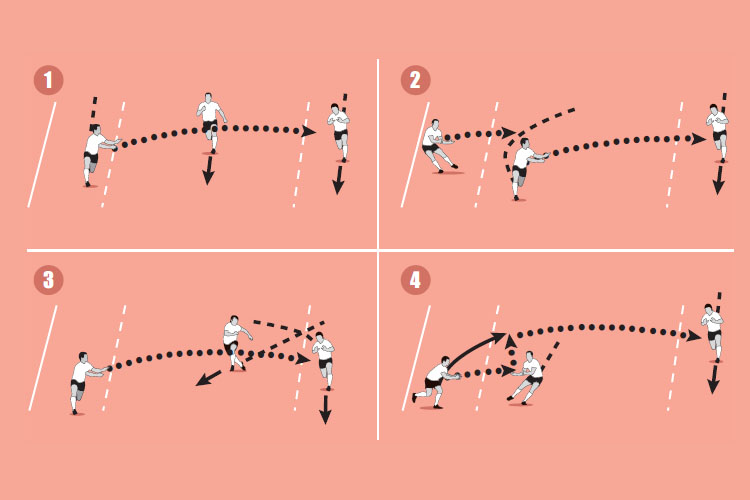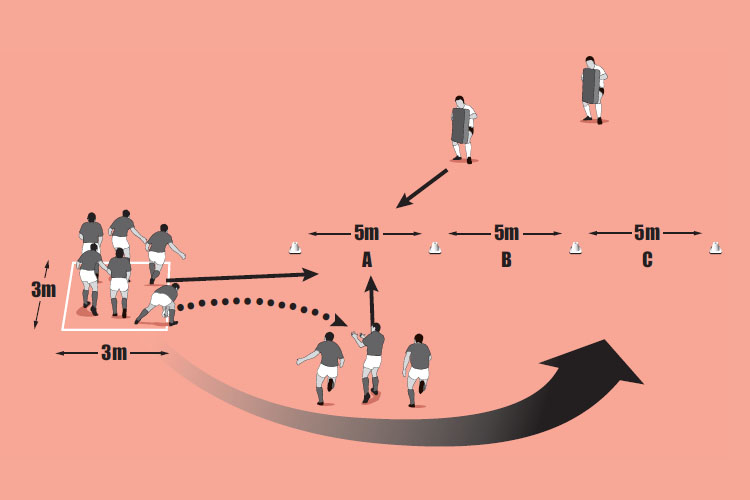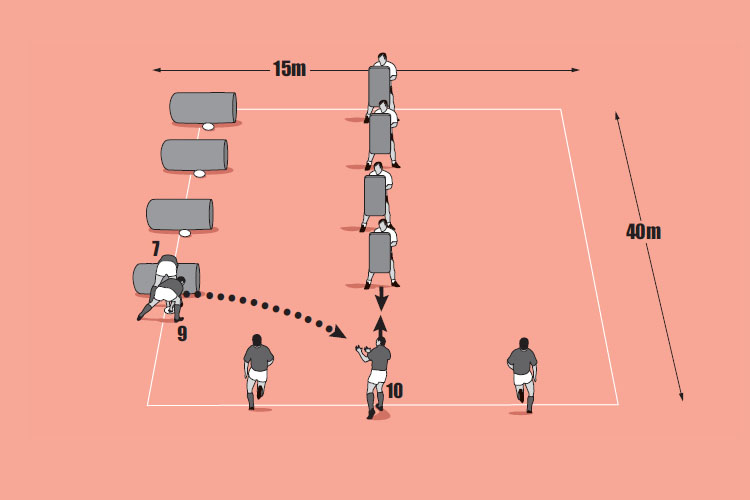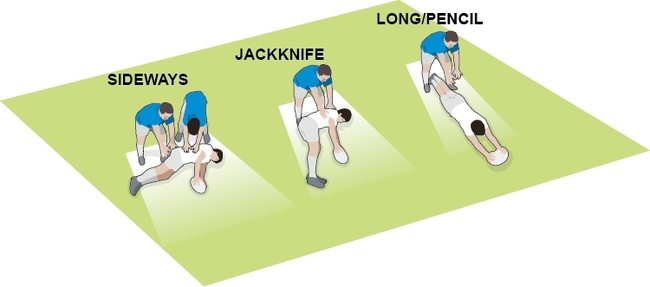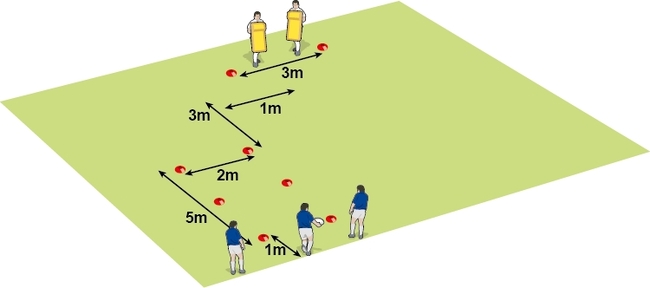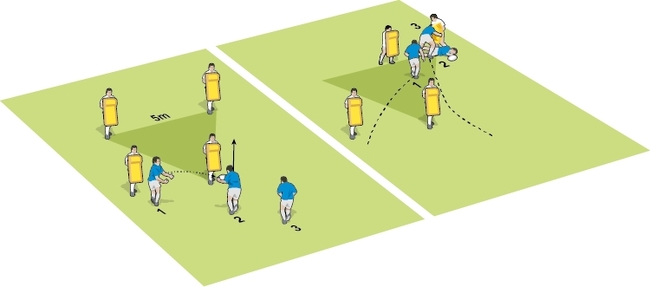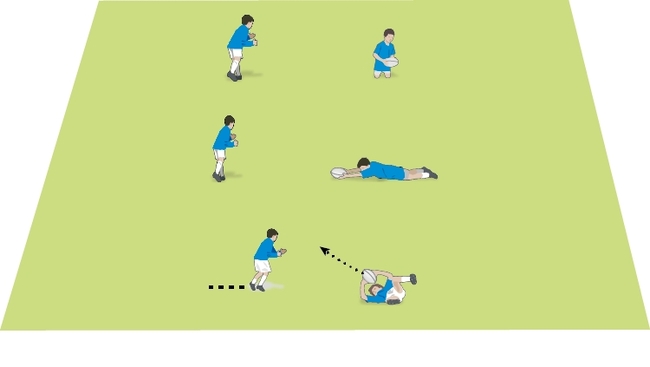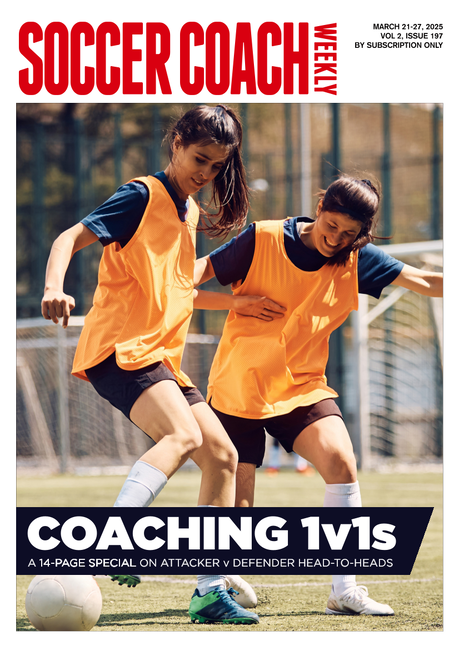Get it back
Being aggressive in the tackle and presenting the ball well will create quicker ball at the ruck. This session focuses on how your players take contact if they can’t avoid it. Winning the contest at the breakdown is a fundamental piece of your core unit skills.
Warm up time: 7-10
Session time: 10-15
Development time: 10-15
Game time: 15-20
Warm down time: 7-10
What to think about
- What is meant by a “power step”?The power step is the final step taken by the ball carrier before hitting contact. He gets low by dropping his hips and takes a big step with the aim of knocking the tackler back
- What other things have to happen to ensure you win quick clean ball?The support players have to arrive quickly and clear out dynamically. The scrum half has to arrive and pass the ball away before the opposition can further disrupt the ball.
- What happens if the ball carrier doesn’t place the ball back?This makes it easier for the opposition to step over and steal or slow down the ball.
set-up
- Win the hit in contact and knock the defender back.
- Go to ground only when the support arrives.
- Get the ball back towards your team.
What you get your players to do
Work attackers in pairs against a defender with a ruck pad. The ball carrier starts two metres away from the pad. He accelerates and takes a big step as he hits the pad. He then takes short steps and fights to stay on his feet. When the ball carrier goes to ground he gets his body between the opposition and the ball and places the ball back. The second attacker steps over and drives the pad back.Development
- Add a second defender with a ruck pad;Now the second attacker has to pick up the ball and drive into the second pad. The first attacker has to get up quickly and act as scrum half.
- Remove the ruck pads and have live defenders.
Related Files
Game situation
Play full contact rugby between two equal teams on a wide pitch. The defending team can’t compete for the ball after a tackle. The ball carrier presents the ball and a team mate has to ruck over before the ball can be passed. The ball is turned over after a try or if there is a knock on. Next allow the tackler only to compete for the ball once he is back on his feet. Finally move to a normal game.What to call out
- “Power your step into contact”
- “Fight to stay on your feet”
- “Get your body between the ball and the opposition”
- “Stretch out and place the ball”
Newsletter Sign Up
Coaches Testimonials

Gerald Kearney, Downtown Las Vegas Soccer Club

Paul Butler, Florida, USA

Rick Shields, Springboro, USA

Tony Green, Pierrefonds Titans, Quebec, Canada
Subscribe Today
Be a more effective, more successful rugby coach
In a recent survey 89% of subscribers said Rugby Coach Weekly makes them more confident, 91% said Rugby Coach Weekly makes them a more effective coach and 93% said Rugby Coach Weekly makes them more inspired.
Get Weekly Inspiration
All the latest techniques and approaches
Rugby Coach Weekly offers proven and easy to use rugby drills, coaching sessions, practice plans, small-sided games, warm-ups, training tips and advice.
We've been at the cutting edge of rugby coaching since we launched in 2005, creating resources for the grassroots youth coach, following best practice from around the world and insights from the professional game.
